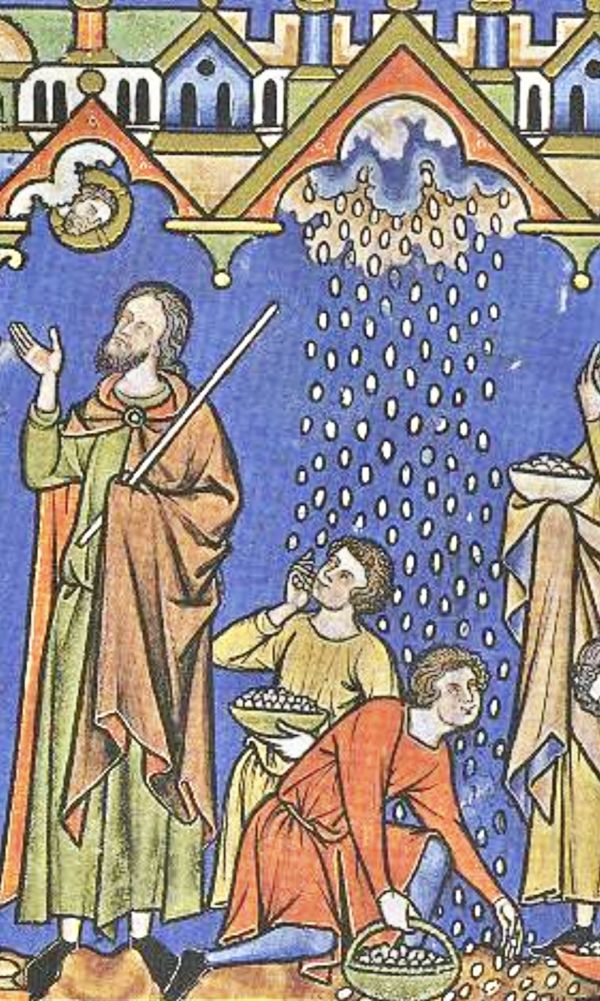(Jn 6:30-35)
What the term «Bread» used by Jesus in this pericope alludes to is derived from the Hebrew term «Lechem», whose root [consonants «l-h-m»] evokes his «being ground» and «sifted» in the Passion of love; thus, it relates in filigree to the complete gift on the Cross.
According to a Jewish belief, the coming of the Messiah would be accompanied by a shower of Manna from heaven - called Manna of the Second Redeemer - to satisfy material appetites.
Bread that does not last.
There were also rabbinic speculations that reflected other claims, not of physical necessity; and they told of the «bread» descended from above in a sapiential figure (Deut 8:3: «man does not live by bread alone, but by what comes from the mouth of the Lord»; cf. Wis 16:26).
In order to satisfy existential needs and great questions of meaning, Jesus reveals and presents Himself as the indestructible Bread of Life.
There are questions we cannot answer: why the pain and humiliation, why there are fortunate people and others who through no fault of their own live unhappily; for what great task we were born and why despite the comforts we still do not feel fulfilled.
Our experience is as if shrouded in the confusion of underlying questions... and often lacking even the eye and warmth of a Witness.
So we look for a Person who translates everything into Relation, and we long for his sapiential Food - a foundation, the humanising warmth, and a synthesis of all truth, of all history.
Only Jesus and his story give meaning to the many happenings; also to limits, wounds, boundaries, precariousness.
He is Dream, Meaning, Action and Voice of the Father. Key, Centre and Destination of each one and of humanity. The only Food for the 'hunger' and the only Source for the 'thirst' of the woman and man subjected to trials and questions.
In Jesus' time, by widespread devotion Moses continued to be the great leader to believe and adhere to. But according to the Lord, that of the Exodus of the "fathers" is configured as a proposal that has no future: it does not guarantee orientation, subsistence and a joyful, solid and full life.
It does not even remain as a stump of the now. It is only an archaic seed, a particular excrescence undone in favour of the mystical and renewed Wheat that makes one proceed on the authentic Path.
The pious and inactual custom - with all its labours - had not secured the great change: access to the 'land of the free'.
The Gift from Heaven prepared and arranged another Birth, upsetting from the root the light, tedious and insipid nourishment; whatever, for all seasons.
No reassuring recipe comes our way, because the 'second Genesis' and growth in the Spirit has character, but it does not happen once and for all.
Even the wounds and uncertainties of life become a 'call' to feed on the Person of Christ. But reinterpreting Him with new answers to new questions; to generate again and grow in Him and of Him.
So we are in the episodes, yet out of time; in the Love that is born, yet new.
We can experience the taste of living, instead of the condemnation of always feeling undermined.
For this spousal and ever-new union, the immense scope of his Person minced, ruminated, made one's own as one does with food, becomes Life itself of the Eternal (v.33).
Anointing that does not lapse, that calls us together to Concelebrate.
[Tuesday 3rd wk. in Easter, May 6, 2025]












